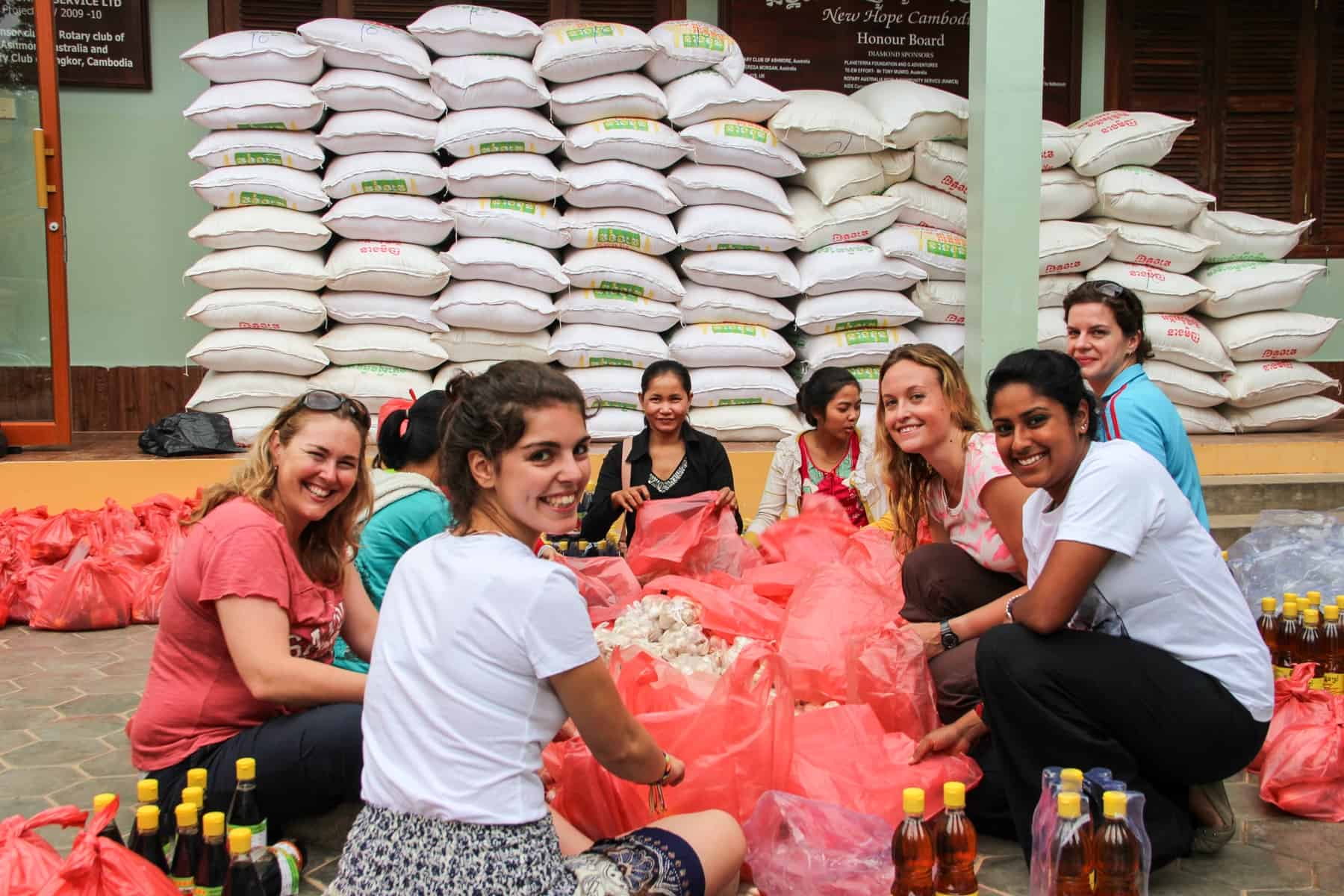Disclaimer: This post contains affiliate links to handpicked partners, including tours, gear and booking sites. If you click through or buy something via one of them, I may receive a small commission. This is at no extra cost to you and allows this site to keep running.
Are you thinking about using TEFL abroad and volunteering? These top tips will show you the best way to gain the correct skills to make the most of your time volunteering and teaching abroad.
A TEFL certification is one of the most valuable skills an English speaking traveller can have in today’s more accessible world. It’s much sought after as a means of travelling the world and working in a variety of different countries.
Contents
Using TEFL for Travel
The subject of volunteering overseas can divide a room, let alone using TEFL abroad and volunteer to teach. You’re either for it or against it. If you’re for volunteering then you’ll have strong opinions on how it can help and if you’re against it, you’ll argue about how detrimental it can be to children, communities and the country in question.
It’s an invaluable experience if done correctly. Whether you are helping to build houses, plant trees, build schools, teach English, coach sports teams or cook food, there’s an advocacy for it, although it has to be structured and well organised.
That’s something that doesn’t always happen overseas, meaning that volunteers aren’t always utilised as well as they could be.

Burmese people always welcomed me on my travels
What Difference Can You Make Volunteering With TEFL Abroad?
The main thing to consider is that you might not actually make a visible difference in the time you have, so your idea of heading somewhere on a short-term project might not unveil huge changes, but it’s important to remember you’re part of a bigger picture in the long-run.
Too many people decide to volunteer but don’t think about what they can tangibly OFFER other than an extra pair of (often inexperienced) hands.
READ MORE: Volunteering when Travelling – The Invaluable Benefits When Done Right
You can’t just walk into an orphanage for a day or spend a day or two at a project and expect to be thanked for coming along, or just get stuck in to ‘doing some good’. When it comes to children and an established community, you need to bond with them, build up their trust. Remember that they constantly see people coming and going, and by going about your placement in this way, you become another one of those people.
READ MORE: An Orphanage is not a Tourist Attraction – Think Before Visiting An Orphanage
Do Your Research before Volunteering with TEFL
Do yourself and those vulnerable people you could be potentially working with a favour and do your research. Gaining a quick TEFL qualification and volunteering with it isn’t about ticking a box.
You need to dedicate the time
I always debated whether or not to take up a TEFL (Teaching English as a Foreign Language) qualification as part of my ongoing volunteer work on my travels, but my time was limited. Because for TEFL, you need to set aside 140 hours – a factor that may not be ideal once you are on the road, but perfect to set in place before you leave to live and work abroad.
This is a serious undertaking that requires planning and dedication. Not to mention the upfront financial investment.
Gain transferable skills and apply them to the project you’re visiting
Take an example from a friend who volunteered in Uganda back in 2007 and taught English in a school in a rural, remote village. She admitted that she didn’t think too much about the trip ahead and travelled to Uganda having done very little research. And it was her responsibility to teach sixty students English for one month. The school holidays were taking place, so the parents allowed the children to abandon their valuable agriculture work in the fields to attend summer school.
If she had known before she left England that the parents relied so heavily on their children during the summer holidays to help them in the fields, she would have definitely made more of an effort to brush up on her teaching skills to be the best possible English teacher during the precious time those children had to learn. She did her best and poured hours of experience into those rewarding and humbling lessons, but says she could have done a much better job.
Volunteering and teaching English as a foreign language abroad should be about giving everything you have, even if that means gaining extra skills before taking a role onboard. Does that mean spending some time in a teaching assistant role at home to better understand the structure of a curriculum? Is it studying or assisting in a carer or social welfare role to gain a better understanding of a person’s situation, ability to learn or issues that could impact their education?
Research the project or place you are looking to volunteer at
Not everything is as it appears on paper. Often a role can sound too good to be true. Spend some time researching the listing that needs a TEFL teacher. Reach out to former teachers (if listed) for insights, make sure it is a legitimate set-up and not a platform that is exploiting its students or the community for financial gain.
No one will doubt that it is rewarding to donate some of your time to volunteering abroad, but do your research and background checks; pack your bag with useful things and pack your brain with all kinds of resources that the projects will appreciate and remember for years to come.
Leave your mark and make sure it’s a positive one.
Which TEFL Course is Best for Working Abroad?
Consider a TEFL course that combines Classroom TEFL with online training so that you feel more prepared for your very first teaching assignment. You get the best of both worlds, all the while supported by TEFL tutors, so you are ready to hit the ground running with confidence when it comes to longer-term projects.
Look for TEFL courses where you get at least one weekend or one full week of practice in the classroom, alongside an online course. You’ll be more helpful to the projects because of the skills you learnt, more useful to the school, and most importantly, to the children.
Classroom and online combination TEFL courses:
- i-to-i Level 3 combined TEFL courses, including two days on classroom time.
- Add to your total 120-140 hours with one of these 20 or 30 hours Classroom TEFL courses.
No matter which type of course you choose, be sure to factor in if the course has adequate instruction and support in ratio to the cost price value. Also check to see the success rate of applicants, as well as any insight on how many of the course students went on to secure international jobs.
The Six Steps to Using TEFL Abroad
- Choose a course – an online course, classroom-based course or a combination of both.
- Work through the course at your own pace, get feedback from real tutors as you go
- Get a shiny TEFL certificate – it’s a qualification that lasts a lifetime
- TEFL courses, depending on the level you get to are equivalent to degree level qualification
- Find a job overseas – you can go anywhere you want in the world
- Book a flight to an exciting new destination
- Get TEFLing – safe in the knowledge you’ve had fantastic TEFL training




Arianwen says
I think TEFL is a great idea. I had a similar volunteering experience in Tanzania. I’d signed up to help in an orphanage because I thought I’d be able to pick up the skills faster than teaching – something I’d never done before. But when I arrived the orphanage didn’t need any volunteers and I ended up as a teaching assistant. While I did my best, I wish I’d known beforehand so I could find out how to have the best possible impact on those kids.